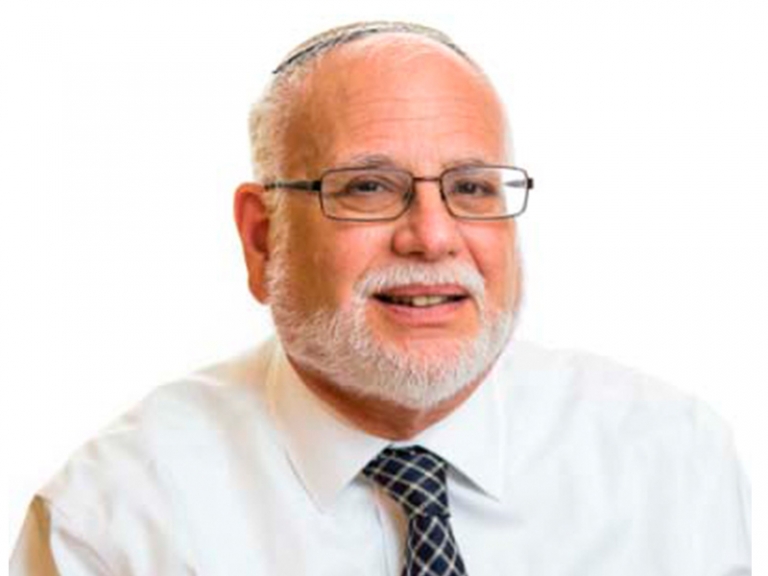D'var Torah by Dr. Kalman Stein, Head of School

Dear Hebrew Academy Community:
Right in the middle of B’Ha’alotcha the Torah interrupts the narrative of Bnai Yisrael’s travel through the desert with two Pesukim:
.ויהי בנסוע הארון ויאמר משה קומה ה' ויפצו אויביך וינסיו משנאיך מפניך
.ובנחה יאמר שובה ה' רבבות אלפי ישראל
Whenever the Ark set out Moshe would say, “Arise, Lord, and may Your enemies be scattered and may those who hate You flee before You.” When the Ark came to rest Moshe would say, “Return, Hashem, to the myriad thousands of Israel.” It is so clear that this beautiful Tefilah is out of place that we place an inverted letter Nun before and after these two sentences to demonstrate that these two verses are seemingly a disruption of the narrative flow.
Rashi famously makes notes that the Torah inserts these Pesukim here “in order to separate the tale of one disaster and that of another.” What are these two disasters? The first is found in the immediately preceding Pasuk: “They—the Children of Israel—traveled a three-day journey from the Mountain of God.” Rashi explains that Am Yisrael left Har Sinai with such haste that they traveled the distance which would normally take three days all in one day! Talmud Yerushalmi (Taanit 4:5) offers a well-known parable to describe how Am Yisrael traveled from Har Sinai: “Like young children who turn away from school and run into the town to wander and play, this is how Am Yisrael turned away from the Torah." The Midrash Yelamdeinu adds that "...they had been at Har Sinai for 11 days short of an entire year and each day they were given Mitzvot. As soon as Moshe told them to go the distance of a one day journey, they went the distance of a three day journey, like a young child who leaves school and runs..." Tosfot (Shabbat, 116a) cites this Midrash and adds the word "bore’ach," meaning to escape, which is an even stronger depiction of the Jewish people's eagerness to get away from their "schooling" at Har Sinai.
The Torah text immediately goes on to describe the disaster which follows our two Pesukim: Bnai Yisrael began to complain so bitterly and vociferously that Hashem was angered: “Who will feed us meat? We remember the fish which we ate for free—אשר נאכל במצרים חנם--in Egypt.” What an interesting choice of words! Would any slave engaged in daily back breaking labor really consider the food supplied by the master to be free? The Zohar explains that in this case free didn’t mean that the food did not cost anything; free in this case meant that while they were in Egypt they were not required to make a Bracha on their food because before they experienced Revelation at Har Sinai “the yoke of Heaven was not yet placed upon us.” By time Bnai Yisrael got to the second disaster, as Rabbi Norman Lamm explains, they had gone from a protest against too much homework to a protest against any discipline or obligation. They fled from Sinai because they had heard all the commandments they thought they could take. The מתאוננים, those who led the chorus of complaints against God, went one major step farther. They were prepared to divest themselves from the obligation to observe the Mitzvot they had already been commanded to observe.
I think we can all acknowledge the temptation to think of our religious responsibilities in the same way some children think about school—too much homework, too much discipline, too many restrictions. How many of us are more concerned with how long we have to spend in Shul for Shabbat morning services than with the quality of our Tefilah during those hours? How many of us allow ourselves to wonder why “the rabbis” can’t find a way to make Judaism easier? How many of us in smaller or larger ways flee from religious obligations like children fleeing from school?
Perhaps an antidote to a degree of religious negativity is to be found in ויהי בנסוע הארון ויאמר משה. Why does the Pasuk state that the Ark travelled? Should it not have been “whenever the bearers of the Aron Kodesh travelled?” The homiletic explanation of Chazal is that in fact, no one carried the Aron. The Aron carried itself, and also those who "carried" it. The Torah supports its supporters, not the other way round. We need to internalize—and more challengingly to help our children appreciate—the message that Judaism is not our burden but rather that it gives our lives meaning, purpose and values, that it carries us through life, so that we can hear and see the music and joy Torah brings us and our families.
Dr. Kalman Stein
Head of School

